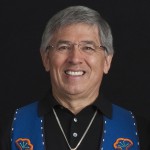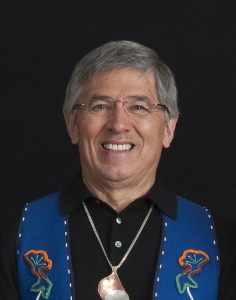https://twitter.com/sarahkendzior/status/384788396146577408
 As of October 1, the federal government is shut down. Driving the shutdown are some Republicans intent on repealing or delaying the Affordable Care Act. Come January roughly 66,000 Alaskans, some even with preexisting conditions, will be able to buy affordable health insurance on the private market for the first time ever.
As of October 1, the federal government is shut down. Driving the shutdown are some Republicans intent on repealing or delaying the Affordable Care Act. Come January roughly 66,000 Alaskans, some even with preexisting conditions, will be able to buy affordable health insurance on the private market for the first time ever.
That includes me. According to a broker, I’ll probably be paying about $500 a month for a plan with a $1200 deductible.
For me that’s a great deal. If not for the new health care law, I would be paying about $1500 a month for such insurance.
That’s a $1000 a month difference. That’s real money. That’s a mortgage. That’s money that can be used to support private Alaska businesses.
U.S. Rep. Don Young voted on Monday yet again to delay the program for a year. Senate hopeful Joe Miller would go further. He would repeal the whole thing. The other Republican hopeful, Lt. Gov. Mead Treadwell has indicated that he would do the same.
For decades, Young has been the beneficiary of the best health insurance available, which has been highly subsidized by the tax payers. He’s now on Medicare. However, in 2009, the plan most favored by members of Congress was Blue Cross Blue Shield, which covered a family for about $1,030 a month. Taxpayers paid $700 of that.
Young, and all the members of Congress, also have government-funded private doctors on the Hill available to them.
As a veteran of our armed services, Miller is eligible for tax funded healthcare.
As a state of Alaska official, Treadwell doesn’t have to pay anything for his insurance. The state health insurance plan is better than almost any plan available on the private market. And, it’s all funded by the citizens of Alaska.
Let me repeat that: As a state worker, Treadwell doesn’t have to pay any monthly premiums for a plan that’s better than nearly any plan normal Alaskans get or can buy themselves.
Funny how politicians always seem to know how to get theirs.
If the health care act is delayed and I can’t sign up for it, I’ll be spending roughly more than $12,000 than I would otherwise. And if only 10,000 Alaskans of comparable health, age and income sign up under ObamaCare, it will save us a collective $120 million.
That’s more than Alaska makes off of taxes from mining, cigarettes and alcohol combined.
The federal government shut down at midnight while the House continues to leverage the budget continuing resolution as a means of delaying ObamaCare. Federal workers all across the state will be affected. So will the elderly and the disabled. The stock market has already fallen as the result of instability. Most of Alaskans who have retirement accounts have at least some of it in the stock market. We’ve all lost money that we’ll probably never get back.
The health care law will not be delayed. Obama will not allow it.
So what’s happening is this: Some Republican politicians are playing partisan games with our money and our health.
I’m going to go to a broker tomorrow and sign up for health insurance through the exchanges, which will be available on January 1. For the first time, I’ll be able to buy affordable, private health insurance. I won’t be getting as good of a deal as Young, Treadwell or Miller.
But I won’t complain. I’m going to have better and more affordable health insurance. And I’ll pass on some of what I’m going to save to Alaska businesses.
Contact Amanda Coyne at amandamcoyne@yahoo.com
“This issue is about what Alaska and Alaskans need at this point in their history to secure their fiscal future. The Governor appears to have gone tone-deaf in understanding that. Someone needs to stand up for what is right… Over the next three weeks I am going to roll out on these pages the budgets I will support going forward. If adopted, they will lead Alaska to a safe and secure fiscal future. They will provide for a ‘Morning in Alaska.’”
From Brad Keithley’s blog, who is sounding more and more like a candidate.

 Some candidates start their campaigns off with a bang, announcing their candidacy and then immediately traveling around the state on a 24 hour whirlwind tour kicking off their campaign. Other candidates seem to meander to the starting line.
Some candidates start their campaigns off with a bang, announcing their candidacy and then immediately traveling around the state on a 24 hour whirlwind tour kicking off their campaign. Other candidates seem to meander to the starting line.
Byron Mallott meandered. Mallott, who is running as a Democrat against Gov. Sean Parnell, first told the media his plans on Sept. 2. On Saturday, more than three weeks later, his campaign has announced a campaign kick-off scheduled for October 16th in Anchorage at the Alaska Experience Theater on 4th Avenue.
Mallott is 70 years old and brings a unique understanding and perspective to both government service and the private sector, as well as to the rural/urban divide that plagues Alaska. At 22, he was the mayor of Yakutat. He was commissioner of the Alaska Department of Community and Regional Affairs under Gov. Bill Egan. He served as mayor of Juneau before becoming the executive director of the Alaska Permanent Fund. He was the CEO of Sealaska Corp, president of the Alaska Federation of Natives, and has served on the board of many corporations, including Alaska Airlines and the Federal Reserve Bank of San Francisco. He’s clan leader of the KwaashKiKwaan clan of the Raven tribe of Yakutat. His wife Toni is a retired elementary school teacher.
Given his history, reputation, and his ties to Native corporations, the slow start won’t likely impede his fundraising abilities. The primary reason for state candidates seeking statewide office to announce over a year before the election is to raise money . State campaign finance laws allow individuals to give $500 and political action committees, or PACs, $1000 per calendar year. Corporate contributions are prohibited. Total out of state contributions for a gubernatorial candidate is limited to $20,000 per calendar year as well
By announcing in 2013 for the 2014 election cycle, candidates can get financial support from large and out of state donors both this year and next. Given the high costs of a statewide campaign, the low maximum contribution level, and our small population base, every day and every dollar counts.
Just last week alone, Gov. Sean Parnell had three fundraisers, two in Anchorage and one in Fairbanks, rumored to have raised collectively in the neighborhood of $40,000 – $50,000. Mayor Dan Sullivan, who is running for lieutenant governor, had a fundraising event in Palmer attended by almost 100 people.
You can bet that starting soon, Mallott will hit the campaign fund raising circuit hard.
Contact Amanda Coyne at Amandamcoyne(at)yahoo.com
On her Facebook page, former Gov. Sarah Palin is making light of the potential for a government shutdown, a possibility that appears more and more possible by the hour. She posted a “funny” list of all the possible negative impacts of a shutdown. “If the government shuts down, who will, “block responsible resource development, spy on me, waste my money…” she posted. The list goes on. Sarah Palin has made millions since quitting her job as governor in 2010.
Lt. Gov. Mead Treadwell, who is running for the U.S. Senate, also appears to support a shutdown. He called those who were trying to do so “courageous,” and said that if he were a senator, he would “stand” with those who were advocating such a move. Joe Miller, the other candidate running in the Republican primary, also supports those who are advocating a shutdown.
Miller’s financial situation is hazy. Treadwell makes $135,000 as lieutenant governor. He makes as much as $200,000 a year in addition to his salary from investments and other income. In Anchorage, his assessed property values total more than $2 million.
In other words, both Treadwell and Palin can afford a government shutdown. They are doing fine and will continue to do so, regardless of whether the government stays open for business. Those who don’t have those resources that these two have will be the ones who are hurt: many of those “proud men and women” wearing our country’s uniform, the elderly, the disabled, those who are trying to build their retirement accounts. The stock market has already lost value in the last two days, and will likely continue to fall if the government shuts down. It will also likely push up interest rates.
Alaska’s congressional delegation, Sens. Mark Begich, Lisa Murkowski and Rep. Don Young, all are trying to avoid the shutdown and the mess that could result. Young for one, has lived through one and didn’t like the experience. Murkowski said a shutdown would put the government in “total disarray.”
Here’s just a few of some of the possible effects that it might have on Alaskans:
Unlike Joe Miller, Mead Treadwell is not known as a true believer. But he does appear to believe that advocating for those who are supporting a shutdown will peel off Miller supporters. He can afford to gamble on such a position, financially at least. It’s likely a stupid political move, however. Those thousands of Alaskans who are going to feel the effects are likely going to make him pay at the voting booth. And Miller’s people are nothing if not good at spotting panderers and apostates.
Contact Amanda Coyne at amandamcoyne@yahoo.com
@HassanRouhani to @BarackObama: I express my gratitude for your#hospitality and your phone call. Have a good day Mr President.
— President of Iran Hassan Rouhani (@HassanRouhani) September 27, 2013
The Denali Commission, the recently embattled agency that was established under the late Sen. Ted Stevens, has again become so embattled that its own inspector general has recommended that the agency be shut down and that he himself be fired.
In a letter published in the Washington Post that the inspector general for the agency, Mike Marsh, sent to Congress and to the Post, Marsh said, “I recommend that Congress put its money elsewhere.”
The news has generated lots of headlines. The conservatives particularly love it. A federal bureaucrat recommending that the government fire him makes a good story, particularly as Congress dukes it out over the budget.
Marsh argues that the money spent is going to projects that villages are too small to sustain. In a previous report, he also alluded to the fact that federal dollars from the agency have gone “missing in action.”
The truth, however, is more complicated.
The Denali Commission acts as a coordinator for federal infrastructure dollars that go to rural Alaska. Money from the agency gets funneled to other agencies throughout the state to build projects like rural health clinics, energy infrastructure, and sewer and water systems.
At its apex, when Stevens was at his most powerful, the funding for the commission topped $150 million in 2006. Last year, the agency’s budget was just over $10 million. The commission is asking Congress for $14 million in the upcoming budget.
Inspector General Mike Marsh lives in Arizona. He’s an accountant and a former prosecutor. In his letter, he suggests that the commission be expanded to include Outside states, that it be turned into a nonprofit organization, that it be a cabinet department, or that it just go away.
The first commission members heard about Marsh’s recent pronouncement was in the newspaper on Friday morning. Marsh didn’t attend the last board meeting, in person or telephonically.
Joel Neimeyer, the top federal official at the agency described Marsh as funny, brilliant, and quirky, but he doesn’t agree that the agency should be shuttered.
Neimeyer said that Marsh is using his law enforcement skills to investigate what the agency has done wrong. In contrast, Neimeyer is an engineer. His job is to look to see what the agency needs to do to make things work.
“It’s two different ways of looking at life,” Neimeyer said.
Perhaps nowhere are these differences in approaches more telling than in Marsh’s report earlier this year about what’s called “renewal and replacement” accounts. In the report, Marsh made it sound as if millions, maybe as much as a $100 million federal dollars went “missing in action”, and he has used this as ammunition to advocate shutting the agency down.
Along with other requirements, renewal and replacement accounts, or R&R accounts, were supposed to be established as part of each project that received an energy infrastructure grant as one part of a business plan. They were accounts, paid for by the users of such facilities through fuel surcharges, that would help maintain equipment.
Such funds were not established for 32 of the 67 accounts audited by the commission. Other requirements of business plans were established.
According to a Denali Commission report about the funds, a total of about $6 million should have been in such accounts; but were not for various and complicated reasons, mostly due to lack of communication between the Denali Commission and the state agencies overseeing the projects.
“This one weakness in oversight does not detract from the totality of the Commission’s efforts,” the report says.
The main point however is that although there was confusion about the accounts, no federal dollars went “missing in action,” Neimeyer said.
In any case, the agency is going through an audit by the U.S. General Accountability Office, and Alaska’s congressional delegation is committed to the commission and will work to keep it alive.
Sen. Mark Begich, who is up for reelection in 2014, said “Alaskans want to keep the Denali Commission and I will continue to fight for it.”
Further, Sen. Lisa Murkowski has called for an audit of Marsh himself, who requested $330,720 last year and $292,653 in the current budget to keep his office running and to give himself a paycheck.
Contact Amanda Coyne at amandamcoyne@yahoo.com
 Mat-Su Valley fundraisers are different than fundraisers in Anchorage. For one, the view is to die for. Secondly, the food is a lot better than at your run-of-the-mill Anchorage fundraiser. The menu at Mayor Dan Sullivan’s event on Thursday night included prime rib, barbeque ribs, chicken, shrimp, and as many kinds of side dishes as the kind of people there.
Mat-Su Valley fundraisers are different than fundraisers in Anchorage. For one, the view is to die for. Secondly, the food is a lot better than at your run-of-the-mill Anchorage fundraiser. The menu at Mayor Dan Sullivan’s event on Thursday night included prime rib, barbeque ribs, chicken, shrimp, and as many kinds of side dishes as the kind of people there.
And unlike most fundraisers in Anchorage, there were a lot of different types of people at the New Horizon’s Hanger in Palmer to greet Sullivan, who is running for lieutenant governor in the Republican primary. About 100 showed throughout the evening. Tea party supporters and businessmen and women, politicians and construction workers. Bob Pickett, chairman of the Regulatory Commission of Alaska was there. So was Dave Cruz, who owns Cruz construction which does business on the North Slope and in North Dakota. A few homemakers. A man who invests in alternative energy projects across the country as well as in an airship business.
Another man wearing a cap that read “Dysfunctional Veteran: Leave Me Alone.” Bill Tull, a lawyer who is a huge supporter of the local arts community was there, as was Rep. Bill Stoltze.
Warm introductions and near endorsements were made by Mat-Su Borough Assemblyman and former vice-chair of the Alaska Republican Party Steve Colligan, Larry DeVilbiss who’s mayor of the borough and the founding member of the Alaska Organic Association, and Palmer Mayor DeLana Johnson, who is living proof that the Valley not only grows good carrots but fetching mayors as well.
The questions were also pointed and Sullivan didn’t pander to the questioners. After Sullivan’s introductory remarks, one person asked about the best route for a natural gas pipeline. Some in the Valley are hoping that if it ever gets built, the terminus will be in the area. Sullivan, however, said that he thought Valdez would make more sense. Vouchers? He’s not quite willing to completely endorse them, but he did point to the success that Milwaukee has had with its voucher program.
In order to win the election, “the Valley is key,” Sullivan said. Indeed, in the 2012 primary election, 80 percent of the people voting in the Mat-Su borough took the Republican ballot. Factoring the turnout, the Valley was more important in the Republican primary than was Fairbanks, Alaska’s second largest city.
Anybody who wants to win the Valley should at least talk to the man wearing the “Dysfunctional Veteran: Leave Me Alone” cap. His name is Mike Coons, and he’s the kind of tea party activist that has helped catapult that group into the national spotlight. He is the former head of the Conservative Patriots Group and was a member of the Alaska State Defense Force, the official state militia. He comments on blogs and on Facebook. He has a long email list. He’s, in a word, active.
Between Sullivan and the other Republican in the race so far, Alaska state Sen. Lesil McGuire, Coons doesn’t know who he is going to vote for. For all of his trenchant views, he’s keeping an open mind. But he wants to talk to both of them. And he has a lot to say about government overreach. About the budget. About the way the state and the country, his country with a view to die for, is run.
Contact Amanda Coyne at amandamcoyne@yahoo.com
“No Congress before this one has ever, ever, in history been irresponsible enough to threaten default, to threaten an economic shutdown, to suggest America not pay its bills, just to try to blackmail a president into giving them some concessions on issues that have nothing to do with a budget.”
President Obama speaking before a crowd suburban Washington D.C.
If it’s true that in politics money talks, and it is, then there’s a reason why women remain more voiceless than their male counterparts. They don’t pony up. A new report released by the Center for Responsive Politics found that although women have made big advances in getting elected to office, they still don’t contribute as much money to the political system as do men.
In the 2012 election cycle, women contributed just under 30 percent of all of the money. Only 19 percent of the money that went to outside groups, or super PACs, came from women. When they removed Miriam Adelson, who was the top donor to such PACs, that number dropped to 11 percent.
More findings:
Read the full report here.
Contact Amanda Coyne at amandamcoyne@yahoo.com
Lt. Gov. Mead Treadwell posted on his Facebook page that he “applauded” Sen. Ted Cruz’s attempt at defunding the Affordable Care Act. He said that “when” he’s elected, he would “stand and work with Senators like Ted Cruz and Mike Lee.”
Treadwell is running in the Republican primary for U.S. Senate. So far, the only other declared candidate is tea party favorite Joe Miller. For years in Alaska, Treadwell had a reputation as being a moderate Republican. He gave money to liberal Democrats, talked about global warming being at least in part caused by human activity, and worked to get the U.S. to sign on to the Law of the Sea Treaty, all of which, particularly the latter, are verboten to the tea party.
That began to change when he ran for lieutenant governor in 2010 and began to court the conservative and tea party vote. In 2010, he declined to endorse Sen. Lisa Murkowski, who was a long time friend of Treadwell’s, against Joe Miller.
He did, however, support her during her write-in campaign against Miller, which infuriated many tea party activists.
Treadwell is now staunchly anti-abortion, repeatedly rails against federal encroachment, and has made repealing the Affordable Care Act a major part of his platform.
A spokesman for Miller indicated that Miller would not readily cede the tea party vote to Treadwell. “Joe has been standing strongly with fellow tea partiers Cruz and Lee and has signed the Senate Conservatives Fund pledge to defund Obamacare,” the spokesman told the conservative site The Daily Caller. ”Unless, Mead just signed on today, he has not. He is shown as a thumbs down on their site.”
While Treadwell’s embrace of Cruz’s “filibusterer” is designed to get him some traction with tea party activists in Alaska, it’s questionable if he will succeed. It also runs counter to the views of some in the Senate Republican leadership, who are increasingly vocal about Cruz “burning bridges” in that organization.
Contact Amanda Coyne at amandamcoyne@yahoo.com

 Poor Alaska. It just can’t get a break. Its coal is watery. Its oil is depleting. Its natural gas is too expensive. lts gold unmineable. Nobody wants its potatoes or barley. Once there was an idea that people might really want its water. Nobody much seems to now. Nobody wants its weather, or its politicians. Nobody wants its people, either. When its people go to other places and say they are from this state, they get funny you’re-weird-get-away-from-us looks.
Poor Alaska. It just can’t get a break. Its coal is watery. Its oil is depleting. Its natural gas is too expensive. lts gold unmineable. Nobody wants its potatoes or barley. Once there was an idea that people might really want its water. Nobody much seems to now. Nobody wants its weather, or its politicians. Nobody wants its people, either. When its people go to other places and say they are from this state, they get funny you’re-weird-get-away-from-us looks.
The one thing it did have going for it, the one thing that it prided itself on above all else, was its salmon.
Nobody, not the biggest mining companies in the world, not the Japanese, the Russians, nor the Canadians were going to take that away from Alaska. Alaska’s salmon was a driver for statehood. Beers are named in their honor. People wear tattoos in tribute to Alaska salmon. Whole lives revolve around the catching, processing and eating of the fish.
And a cottage industry has sprung up and millions of state dollars have been spent trying to convince the world that it tastes better than all other salmon.
The problem? According to a panel that the Washington Post put together of noted D.C. seafood chefs and a seafood wholesaler, it doesn’t taste better. In fact, the two Alaska species on the table scored second to last and last place compared to salmon from eight other regions.
Adding insult to injury, salmon from Alaska was among the most expensive of all they tried.
Number 1 on the list? Farm raised, frozen salmon from Norway, sold and packaged by Costco. Number two, farmed raised salmon from Norway. In fact, the top five on the list were all farm raised.
Here’s the complete list:
1. Costco farmed Atlantic, frozen in 4 percent salt solution, from Norway; $6 per pound (7.6 out of 10)
2. Trader Joe’s farmed Atlantic, from Norway; $10.99 per pound (6.4)
3. Loch Duart farmed Atlantic, from Scotland; $15 to $18 per pound (6.1)
4. Verlasso farmed Atlantic, from Chile; $12 to $15 per pound (6)
5. Whole Foods farmed Atlantic salmon, from Scotland; $14.99 per pound (5.6)
6. ProFish wild king (netted), from Willapa Bay, Wash.; $16 to $20 per pound (5.3)
7. AquaChile farmed Atlantic, from Chile; $12 to $15 per pound (4.9)
8. ProFish wild coho (trolled), from Alaska; $16 to $20 per pound. (4.4)
9. ProFish wild king (trolled), from Willapa Bay; $16 to $20 per pound (4)
10. Costco wild coho, from Alaska; $10.99 per pound (3.9)
But really, what do those stupid, D.C. chefs know? Nothing. They know nothing at all. They’re stupid and so are their taste buds and we don’t care what they think because we know our salmon is the best in the world. End of discussion.
Contact Amanda Coyne at amandamcoyne@yahoo.com

 Time magazine hones in on what the fuss over Obamacare is all about and what, apparently, many politicians are afraid of:
Time magazine hones in on what the fuss over Obamacare is all about and what, apparently, many politicians are afraid of:
“Only those without affordable employer-based insurance will be able to shop in the exchanges, meaning federal officials expect only 3 percent of the those who will have insurance in 2014, or 7 million people, will get it via a state exchange. Despite their relatively small size, the exchanges will signify the first real opportunity for many uninsured Americans to access comprehensive, affordable insurance coverage that won’t discriminate against those with pre-existing conditions.”
Basically, they’re afraid that people who aren’t lucky enough to work for companies that offer health insurance will be able to afford it on the private market.
It should be noted that Gov. Sean Parnell, along with all those in Congress who are against healthcare reform, including Sen. Lisa Murkowski and Rep. Don Young, get affordable employer-based insurance that doesn’t discriminate against them or their families if they have pre-existing conditions. And it’s paid for by our tax dollars.
On Fox News Tuesday, former Alaska Gov. Sarah Palin likened what’s going on with Sen. Ted Cruz with what happened to her in Alaska:
“Am I surprised that RINOs would turn on one who would stand strong on [conservative] planks? No, because some of us have lived through that,” Palin said. “I’ve always been very, very independent. Up here in Alaska, it’s why I’m not in the good graces of the Alaskan political party when it comes to republican machinery.”
Palin spent much time Tuesday urging Cruz to continue to try to delay a Senate vote on whether or not to defund the Affordable Care Act as part of a budget package.
In an attempt to delay the vote, Cruz and Sen. Mike Lee spent more than 20 hours in front of a mic on the Senate floor. Here’s her tweet from last night as he was speaking:
Ted & Mike are going strong for over 10hrs now. We can hear you all the way in Wasilla. DC better be listening!… http://t.co/ahFHZuBVop
— Sarah Palin (@SarahPalinUSA) September 25, 2013
Contact Amanda Coyne at amandamcoyne@yahoo.com
Brad Keithley, one of the potential independent candidates for governor, must have the Republican establishment scared. I know this because I get texts and emails from those political activists who appear to be scared. They are going through his voting record, trying to make the case that he’s a Democratic operative who moved to Alaska just to sabotage Gov. Sean Parnell, much like Vic Vickers, who moved to Alaska to run against Ted Stevens in 2008.
In order to run for governor, a person has had to live in Alaska for seven years. Keithley has said that he will have been here seven years if and when he files for governor.
Republicans are also trying to make his voting habits an issue. It appears that the first time Keithley voted in Alaska was in 2010. He freely admits this and says that he didn’t register to vote in Alaska when he first moved here from Texas and he doesn’t recall voting in Texas since 2000.
Their fear is understandable. Keithley has been talking and writing to an increasingly growing audience about the spending problem in Alaska. His point is a simple one: since oil prices began to rise in the mid 2000s, Alaska has been on a spending spree that rivals the last big spree the state went on in the late 1970s and early 1980s.
You can still see bumper stickers on cars that were made in the earlier spree’s honor. “Dear God, give us another oil boom and, this time, we promise we won’t piss it away,” it reads.
Keithley’s point: we have had another oil boom, and we’re pissing it away. A fact that he is continually hammering away on is that since Parnell took office, the budget has increased by 55 percent.
Parnell, it should be noted, calls himself a fiscal conservative.
It’s a simple message, and although we can argue about the best way to cut spending, it’s hard to argue that we shouldn’t at least try, unless you’re Parnell, who has no plans to significantly cut the budget for the next five years, or for as long as he’s in office if he gets a second term.
The people who benefit from all the state government largess — people like the developer Mark Pfeffer, the master of sole source government contracts, and a prolific campaign contributor—aren’t likely happy about what Keithley is preaching. Those people are arguing that the state’s spending keeps Alaskans working. Which, as Keithley points out, sounds suspiciously like Obama’s stimulus plan. Unlike the federal government, however, nearly all of Alaska’s revenue comes from one source, and that one source is continually declining. Even if the producers do start to pump more oil because of the recent tax cut, the state is heading for a fiscal cliff.
According to UAA’s Institute of Social and Economic Research, Alaska doesn’t have the savings to forestall a fiscal crisis much after 2023.
Keithley thinks that it’s important that Alaskans hear that message.
Keithley is threatening to run for governor, but hasn’t yet filed. If he does, there will be all sorts of time to dig deeply into his past. For now, however, he’s a private citizen speaking what he feels is a message that needs to be heard. Some, apparently, don’t want him to tell it.
Contact Amanda Coyne at amandamcoyne@yahoo.com